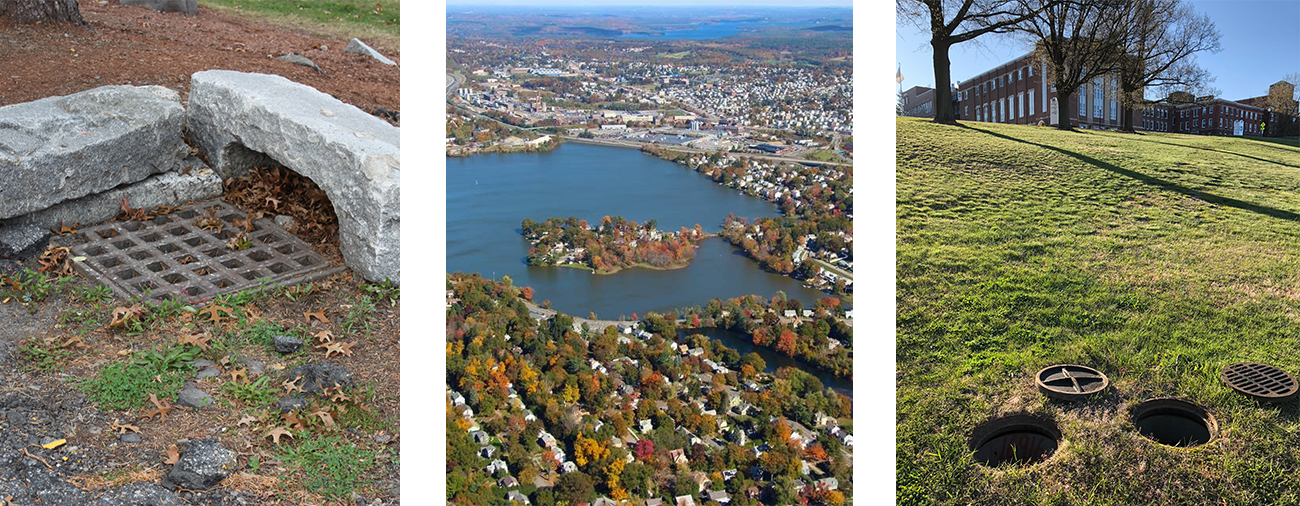Stormwater is a pollution problem that affects everyone in Massachusetts, but if we all do our part to help, we can reach our goal of clean and healthy waterways. Any excess rain, snow or ice melt that does not infiltrate into soil is called runoff. In urban areas, containing mostly asphalt, concrete and other impervious surfaces, stormwater runoff can carry pollutants such as salts, oils, grease, and debris. Stormwater runoff often makes its way through a series of storm sewers before discharging to surface waters, such as lakes or rivers. Excess pollutants in surface water can affect the health of plants and wildlife because this stormwater often goes untreated. The best solutions are to prevent pollutants from entering the storm sewer system and directing stormwater to “green” areas designed with plants and soils designed to soak up and treat runoff. Quinsigamond Community College is dedicated to contributing to cleaner water and a healthier environment.

In 1990, the U.S. Environmental Protection Agency (EPA) published rules for Phase I of the National Pollutant Discharge Elimination System (NPDES) stormwater program. The Phase I program required municipalities with populations of 100,000 or greater to implement a stormwater management program to control discharges from the “Municipal Separate Storm Sewer System” (MS4). An MS4 is a conveyance or system of conveyances that is:
- owned by a state, city, town, village, or other public entity that discharges to waters of the U.S.,
- designed or used to collect or convey stormwater (e.g., storm drains, pipes, ditches),
- not a combined sewer, and
- not part of a sewage treatment plant, or publicly owned treatment works (POTW).
The 1999 Phase II regulation (implemented in 2003) requires small MS4s in U.S. Census Bureau defined urbanized areas, as well as MS4s designated by the permitting authority, to obtain NPDES permit coverage for their stormwater discharges. Phase II also includes non-traditional MS4s such as public universities. Quinsigamond Community College holds a MS4 General Permit issued by the Commonwealth of Massachusetts. Under the conditions of this permit, QCC is required to manage its stormwater system by implementing management programs, mapping and maintaining the system, and controlling pollutants.
Stormwater management programs for both the Phase I and Phase II require that communities reduce the discharge of pollutants to the “maximum extent practicable”. The regulations require that the management programs address a minimum of six elements, that when implemented are expected to result in significant water quality benefits. The six elements are listed below:
- Public Education and Outreach
- Public Participation / Involvement
- Illicit Discharge Detection and Elimination
- Construction Site Runoff Control
- Post-Construction Runoff Control
- Good Housekeeping for Facilities
Stormwater Meeting
See below for the latest meeting resources.
Helpful Links
Check out the following stormwater management resources.
Have Questions?
Additional documentation required by the EPA is available upon request. For more information contact Stephen Zisk. Documents available upon request:
- Stormwater System Mapping & Outfall Inventory
- Illicit Discharge Detection and Elimination (IDDE) Program
- Design Guidelines and Green Infrastructure Report (June 2024)
- Operations & Maintenance (O&M) Program
